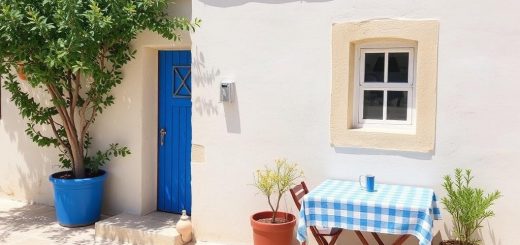Cyprus Wedding Traditions: From Engagement to Reception
Cyprus, a Mediterranean island rich in history and culture, offers wedding traditions deeply embedded in its heritage. Cyprus wedding traditions uniquely blend religious customs, family gatherings, and local cultural practices, creating an engaging, meaningful experience for couples and their communities. Understanding marriage customs Cyprus involves exploring a thorough progression of events, starting long before the wedding day itself. From the deeply symbolic engagement ceremonies to the lively wedding ceremonies Cyprus embrace, every step offers a glimpse into the island’s social fabric and values.
Traditional weddings Cyprus are not simply about the union of two individuals but an affirmation of familial and communal ties. These cultural celebrations Cyprus highlight a combination of Orthodox Christian rites, regional customs, and modern influences. The interplay between ritual and celebration gives these weddings a distinctive character unforgettable to participants and observers.
The Engagement: A Formal Introduction to Union
The journey towards a wedding on the island starts with the engagement, often imbued with a formal and respectful tone. Engagement traditions in Cyprus are taken seriously, as they signify the official promise to marry and begin the process of uniting two families. Historically, engagements involved formal meetings between the families, often facilitated by mutual acquaintances or elders, aimed at affirming the compatibility and intentions of the couple.
During the engagement ceremony, known locally as the “moutouka”, the groom’s family visits the bride’s home to present gifts, including sweets, flowers, and sometimes jewelry. This ceremony symbolizes not just the couple’s promise but also the respectful initiation of familial ties. Although modern engagement practices have adapted in timing and formality, certain traditional elements like the symbolic gift exchange and blessing ceremonies remain prominent.
The engagement phase in Cyprus is as much about family alliance as it is about the couple’s commitment, reflecting the communal nature of marriage customs Cyprus.
Pre-Wedding Preparations: Rituals and Community Bonds
Before the wedding ceremonies Cyprus officially commence, numerous rituals take place which uphold centuries-old traditions and reinforce bonds between families and communities. These preparations often include spiritual, practical, and celebratory elements. One commonly observed ritual is the blessing of the couple by the village priest, ensuring spiritual favor and protection.
In the days leading to the wedding, families collaborate closely to organize everything from the religious rites to the reception venue. Traditional weddings Cyprus often involve the preparation of local foods and delicacies, handmade decorations, and even textile work like embroidery on wedding garments. Community members, particularly women, play an essential role during this stage, contributing their skills and labor as a form of social support.
Another crucial pre-wedding custom is the “vraka fitting,” wherein groom’s traditional attire, including the baggy pants and embroidered vest, is tailored. The bride, meanwhile, prepares her wedding dress, frequently incorporating hand-stitched elements passed down generations, emphasizing continuity and heritage.
Symbolic Pre-Wedding Customs
Some villages maintain unique practices such as the ceremonial cleaning of the bride’s home, symbolizing the fresh start that marriage brings. Additionally, music plays a significant prelude role; traditional instruments like the violin and lute are played to invite good omen and joy.
Pre-wedding rituals in Cyprus serve to weave social and spiritual support around the couple, ensuring both community involvement and religious blessings.
Wedding Ceremonies Cyprus: Orthodox Traditions and Cultural Flair
The central moment of traditional weddings Cyprus takes place within the Orthodox Church, reflecting the dominant religious affiliation of the island. The ceremony is deeply symbolic, blending religious rites with cultural expressions that have been preserved over centuries.
One of the most recognizable elements in the wedding ceremonies Cyprus is the crowning, or “stefana” ritual. The priest places ornate crowns on the heads of the bride and groom, connecting them metaphorically as king and queen of their new household. These crowns are linked by a delicate ribbon symbolizing unity and partnership. The crowns are often family heirlooms, crafted with precious metals and sometimes engraved with religious motifs.
During the ceremony, the couple takes part in a procession around the altar, known as the “Dance of Isaiah.” This ritual signifies their journey through life together and commitment under divine guidance. Accompanying hymns and prayers emphasize themes of love, faith, and responsibility.
| Component | Description |
|---|---|
| Stefana (Crowns) | Symbolize unity; linked by a ribbon, representing the couple’s inseparable bond. |
| Dance of Isaiah | Procession around the altar signifying the couple’s life journey together. |
| Exchange of Rings | Represents mutual consent and eternal commitment. |
| Holy Communion | Spiritual union and blessing with the church community. |
While the core ceremony remains religious, it is often punctuated by local customs, such as the bride’s veil being lifted by male relatives after the “stephana” ritual, symbolizing her transition from maidenhood to wifehood. Music, often featuring traditional hymns played on the organ and chanted by the clergy, adds to the solemnity of the occasion.
The Orthodox church wedding ceremony intertwines sacred symbolism and cultural expressions, marking a profound spiritual and communal milestone.
Post-Ceremony Celebrations: The Reception and Festivities
Following the religious rites, traditional weddings Cyprus move to a more exuberant phase—the reception. This celebration is an extensive affair, extending from afternoon into late evening, emphasizing joy, socialization, and continuity of relationships. The reception is filled with music, dance, food, and rituals, all curated to honour both the couple and their guests.
Local cuisine features heavily in the celebrations, with staples such as lamb, halloumi cheese, olives, and an abundance of sweets like “baklava” and “koufeta” (sugar-coated almonds). These foods are not only culinary traditions but also symbolic offerings of prosperity and sweetness in marriage. The serving of “koufeta” is especially significant as it symbolizes fertility, purity, and good luck.
Music and dance are central to the reception. Traditional Cypriot folk dances, such as the “sousta” and “zeimpekiko,” engage guests of all ages, forging a collective celebratory spirit. Often, musicians equipped with the violin, oud, and lute lead the festivities, connecting dance to cultural identity.
Other noteworthy customs include the symbolic breaking of glass by the bride or groom, which is believed to ward off evil spirits and bring good luck. Guests also participate in collective rituals, such as the “money dance,” where loved ones pin currency onto the bride’s dress or groom’s suit to help the couple start their new life together.
Reception Traditions at a Glance
- Serving of “koufeta” to guests.
- Traditional folk music and dance performances.
- The “money dance” to support the newlyweds financially.
- Breaking of glass as a good luck charm.
The reception at Cyprus weddings is a dynamic fusion of culinary delights and cultural rituals, ensuring the community celebrates the couple’s new beginning with warmth and tradition.
Modern Influences and Variations in Cyprus Wedding Traditions
While traditional weddings Cyprus maintain many core customs, contemporary societal changes have introduced significant variations and adaptations in how these weddings are conducted. Urbanization, globalization, and evolving social norms have combined to make modern weddings more flexible and personalized.
Today, couples might choose to incorporate elements from both the Orthodox tradition and civil ceremonies to fit their preferences and lifestyles. Some opt for beach or garden venues, reflecting Cyprus’ natural beauty, rather than solely relying on church spaces. Wedding attire has also diversified, balancing traditional dress with modern styles.
Despite these changes, cultural celebrations Cyprus remain crucial in maintaining a link to heritage. Many modern couples choose to highlight specific rituals such as the “stephana” crowning or the serving of “koufeta” even in less traditional settings. Family involvement continues to be a cornerstone that preserves the essence of marriage customs Cyprus.
Modern Cyprus weddings strike a delicate balance between honoring longstanding traditions and embracing contemporary values and aesthetics.
A Closer Look at Cyprus Wedding Symbols and Their Meaning
Beyond rituals, Cyprus wedding traditions are rich with symbols that underscore the cultural depth of marriage customs Cyprus. These symbols function on individual, familial, and societal levels, encapsulating hopes, values, and identity.
The “stephana” crowns reiterate the idea of shared sovereignty, mutual respect, and spiritual union. The ribbon linking them highlights that marriage is a partnership—not in isolation but connected to the community and faith. Similarly, “koufeta” sugar-coated almonds given to guests symbolize the bittersweet nature of married life, reminding all that joy and challenge coexist.
Colors also hold meaning: white symbolizes purity and a new beginning for the bride, while red is often used in some local customs to represent fertility and life’s vitality. The breaking of glass during festivities symbolizes the fragility of marriage but also the strength found in overcoming life’s trials together.
Symbolism in Cyprus weddings weaves a narrative of unity, endurance, and communal blessing passed through generations.
The Social Role of Cyprus Weddings: More Than a Personal Union
Marriage customs Cyprus highlight the fact that weddings play a pivotal role beyond the couple, contributing to societal cohesion and cultural transmission. These events serve as platforms for reinforcing kinship ties, community identity, and continuity of traditions in a rapidly changing world.
Families often view weddings as strategic moments for strengthening alliances, enhancing social networks, and celebrating cultural heritage. The public nature of the marriage ceremony and reception ensures that commitments are witnessed and supported by a broad social circle. This communal involvement adds layers of accountability and collective joy.
Furthermore, Cyprus weddings act as educational occasions for younger generations, passing down skills, songs, dances, and narratives integral to cultural celebrations Cyprus. Through these ceremonies, cultural pride is nurtured, securing the survival of unique customs in an era of globalization.
Impact Summary
| Aspect | Role of Wedding Customs Cyprus |
|---|---|
| Familial Bonds | Strengthen relationships and unite families. |
| Community Identity | Celebrate shared heritage and cultural continuity. |
| Generational Transmission | Educate youth on cultural values and traditions. |
| Social Validation | Provide collective witness and support for marriage. |
Weddings in Cyprus are critical social events that solidify community bonds and ensure the longevity of cultural heritage.
Embracing the Future: How Cyprus Wedding Traditions Evolve
Looking ahead, the cultural celebrations Cyprus associated with weddings continue to evolve while respecting their origins. Trends such as destination weddings, fusion ceremonies incorporating other cultural elements, and eco-conscious practices are influencing the modern landscape.
Couples and families now often aim to blend authenticity with innovation, ensuring that while weddings remain true to Cyprus wedding traditions, they also reflect the couple’s unique identity and contemporary realities. Digital technology further allows global participation, enabling diaspora communities to connect with traditions from afar.
Yet, with all these changes, the core principles of unity, respect, and community support endure. Cyprus wedding traditions are living customs—dynamic yet anchored. Their future depends on this balance between preservation and adaptation, ensuring every marriage is celebrated as both a private joy and a collective cultural moment.
The future of Cyprus weddings rests in the harmony between honoring enduring traditions and embracing innovation to stay meaningful for new generations.
Why Cyprus Weddings Remain Timeless Celebrations
Culturally rich and deeply symbolic, Cyprus wedding traditions weave together history, religion, family, and community into one of the most meaningful celebrations on the island. From the formal engagement and meticulous pre-wedding preparations to the sacred ceremonies and vibrant receptions, every stage highlights values enduring through centuries.
Traditional weddings Cyprus provide more than just a beautiful event. They serve as living stories of identity, continuity, and transformation connecting the past, present, and future. These marriage customs Cyprus carry lessons in unity and cultural pride, reminding us how marriage is not only a personal milestone but a reflection of communal strength.
As cultural celebrations Cyprus continue to adapt, they offer a blueprint for how meaningful rituals can survive modern pressures without losing their soul. This blend of faithfulness and flexibility guarantees that Cypriot weddings remain not just relevant but cherished, ensuring love and tradition go hand in hand.
Cyprus wedding traditions stand as timeless bridges between generations, capturing the heart of cultural identity through every sacred and festive moment.
Frequently Asked Questions about Cyprus Wedding Traditions
- What is the significance of the “stephana” crowns in Cyprus weddings?
The “stephana” crowns symbolize the unity, spiritual connection, and mutual respect of the couple, traditionally linked by a ribbon representing their inseparable bond. - Are all Cyprus weddings required to have a church ceremony?
While the Orthodox church ceremony is traditional and common, some couples opt for civil or blended ceremonies, especially in modern settings, but the church rite remains highly valued culturally. - What role do family and community play in Cyprus wedding customs?
Family and community involvement is crucial, serving both as social validation of the marriage and as active participants in rituals, preparations, and celebrations. - What is “koufeta” and why is it important in Cyprus weddings?
“Koufeta” are sugar-coated almonds distributed to guests, symbolizing fertility, sweetness, and good luck in marriage. - Have Cyprus wedding traditions changed over time?
Yes, modern influences have introduced changes in venue, attire, and ceremony style while maintaining core cultural and religious elements. - Are there unique pre-wedding rituals in Cyprus not found elsewhere?
Yes, practices such as the “moutouka” engagement ceremony, vraka fitting, and symbolic cleaning rituals are culturally specific elements. - How do Cyprus wedding traditions promote cultural continuity?
They involve intergenerational participation, education in rituals, and communal celebrations that reinforce identity and heritage.



